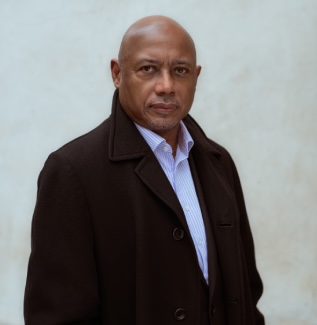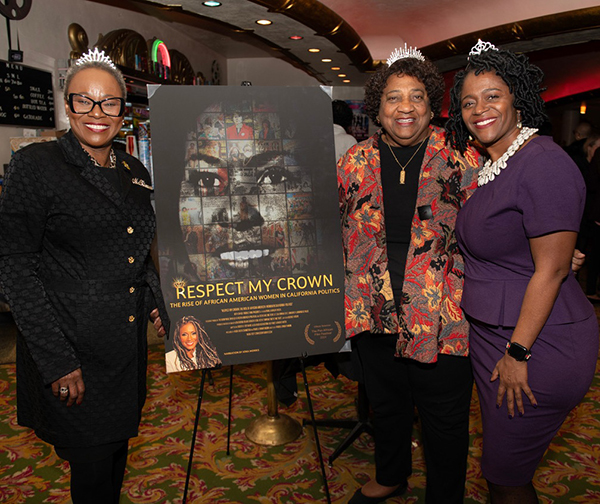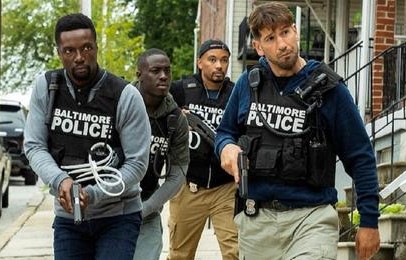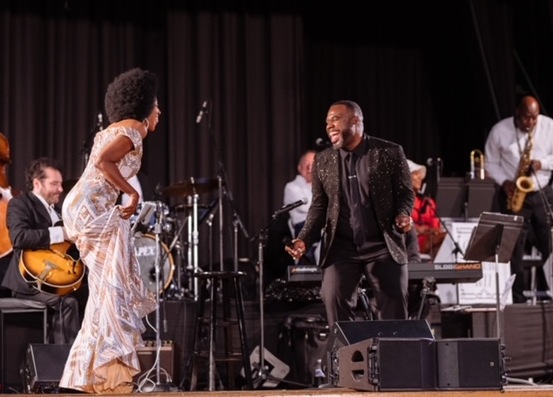BEST OF TASTY CLIPS: Documentarian Raoul Peck hinted at his passion project

Documentarian Raoul Peck has completed his documentary on author George Orwell. ‘Orwell: 2+2=5,’ opens at the Nuart Theater and nationwide Oct. 10.
Courtesy photo
By Bill Vaughan
Entertainment Writer
When I last interviewed master documentarian RAOUL PECK in 2017, he hinted about a particular passion project based on one of the most radical and visionary authors of the 20th Century — George Orwell — whose best-known works include “1984” and “Animal Farm.”
Now in collaboration with the Orwell estate, his film “Orwell: 2+2=5,” is opening in LA at the Nuart Theater and nationwide Oct. 10. The film seamlessly interweaves historical clips, readings from Orwell’s diary voiced by actor Damian Lewis, cinematic references, and dynamic modern-day footage to craft not only a definitive portrait of the writer himself, but an entirely fresh take on how remarkably relevant and prophetic his work has become.
Peck, who has his own personal connection to the material — as an 8 year old he was forced to flee the Duvalier dictatorship in Haiti — doesn’t just present the information but shows new ways of seeing it, drawing patterns and connections we might not otherwise realize.
His extraordinary service to details is present much as is on display in his previous studies such as “Ernest Cole: Lost and Found” and “Exterminate All the Brutes.”
We spoke while he was promoting his Oscar nominated documentary “I Am Not Your Negro” which he described as “the impossible film.” After acquiring the rights to the iconic author James Baldwin’s final unfinished book 10 years ago, he had no clue if he could make it work because he was determined not to make a biography.
With about 30 pages, the director was at an impasse.
“Then [Baldwin’s sister] Gloria gave me his notes and that was it,” Peck said. “I had the perfect excuse to go through all his work and pull out everything I felt was important right now and find a place in that film.
“What I kept from the notes was essentially the redline about his three friends [Martin Luther King, Jr., Malcolm X and Medgar Evers] which was the extraordinary idea to tell the story of America through their lives. He felt that was urgent for him to write about it.
“So, I kept the framing. The fact that they were wide apart either geographically or ideologically and ultimately how they became closer and closer together as Baldwin writes. And then their assassination for the same reason basically. The fact that they were leaving a race issue towards a class issue which made them dangerous for the system.”
Peck talked about how Baldwin challenged even the idea of the American dream: “He said, ‘How can we have a dream if it starts with a genocide and we don’t want to acknowledge this genocide?’ Those are powerful words. What he does is he brings this to your face. He says you need to face it because history is not the past, history is the present and you need to deal with it.”
A shocking image in the film unfolds early with the corpse of Malcolm X riddled with bullet holes.
Explains Peck: “Nobody would dare show it, but I wanted that from the get-go because I needed a very strong entry point. It’s a film also about death and assassination. These men did not deserve to be killed, and this is how you look when you are dead. It’s not a game.”
Another surprise was the understated work of Samuel L. Jackson in telling the story.
“Even his agent did not recognize him,” Peck said. “That’s the thing. There is not a narrator. He did the work but he did it as an actor, not as a speaker. I don’t know any documentary that took this approach before — to be totally in the head. It’s about Baldwin talking to us.”
As for what he hoped audiences took from “I Am Not Your Negro,” Peck desired to see the author’s works returning to the curriculum for younger people to learn about his existence.
“The renewed interest will help to have a fundamental discussion,” he said, “not about race but about changing this country and this power structure. Like Baldwin says, ‘White is a metaphor for power.’”
For more than 11 years, Bill Vaughan has kept Wave readers up to date with the latest news in entertainment. Now, we are collecting some of those past columns into what we call the Best of Tasty Clips. To contact Vaughan, visit his social media pages on Facebook and Instagram or @tasty_clips, on X @tastyclips, and on LinkedIn to William Vaughan.





